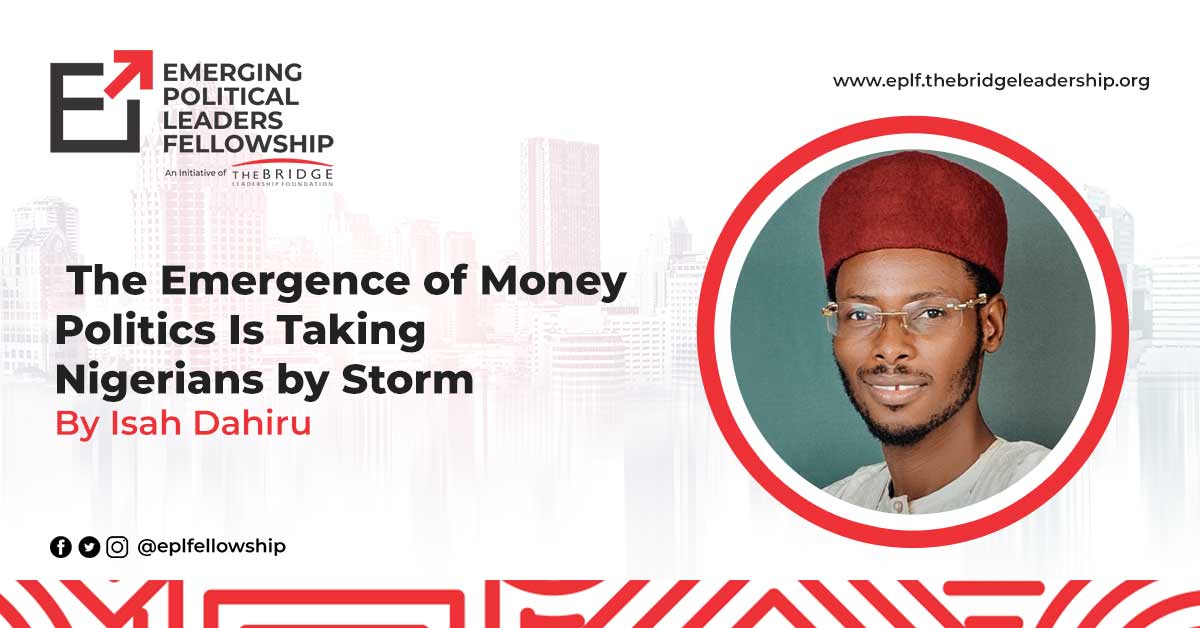Money is an essential tool for the exchange of goods and services in the times of the past and present. It is something generally accepted as a medium of exchange, a measure of value, or a means of payment and gratification as it relates to politics in Nigeria.
In politics, especially in a multi-party democratic system, political parties are established to articulate the contending interest of the population. Citizens cast their votes on Election Day to elect their leaders on those party platforms. Money involvement usually starts at the party level and continues up to the election ground.
Money politics in a layman’s accord is that kind of politics whereby members of a political party offer money and other things in order to win support from certain individuals or communities during an election campaign. During elections in Nigeria, it was not uncommon to hear of instances where people were given money, rice, noodles, salt, and branded clothes. In return, the recipient would cast their votes for a specified political party.
The Phenomenon of money politics in Nigeria is not a new concept, the history of electioneering processes in the country, especially after independence, was largely influenced by buying and selling of votes. Money politics is quickly shrinking the political space, becoming a key variable in determining who participates in electoral politics. As a matter of fact, nomination fees for party members seeking elective posts for instance have become so high that only the rich can participate in party primaries.
Given the dark socio-economic background of Nigeria which, according to the data from the World Poverty Clock as of March 2022, has over 70 million people currently living in extreme poverty, the costs of nomination forms are a direct affront and insult to the sensibilities of the long-suffering Nigerians.
Worrisome still is that the country, with the highest number of school-age children still out of school, but at 10. 5 million Nigerian children and one in five out-of-school children in the world has politicians that are not worried by this scandalous scenario! Neither are they concerned that the beleaguered country has overtaken Iraq as the most terrorized in the whole wide world! Theirs is that of battling for political power by all means-good and crooked and retaining it more by the latter than the former.
The way forward is for INEC to prosecute anyone found wanting for infringing on political finance regulations. Now is the time to de-emphasize money politics and push for clear-cut party manifestos that seek lasting solutions to the people’s most pressing needs.
With these analogies, it can be incurred that money politics is the driving force of the Nigerian democratic process, it is, therefore, the collective responsibility of all stakeholders from the government to the electoral institution to strictly see to the adherence of financial electoral regulations. The challenges should never be allowed to take Nigerians by storm again, this is a duty for all.
Written by Isah Dahiru


Comment (1)
Good article Sir
And well written
Comments are closed.